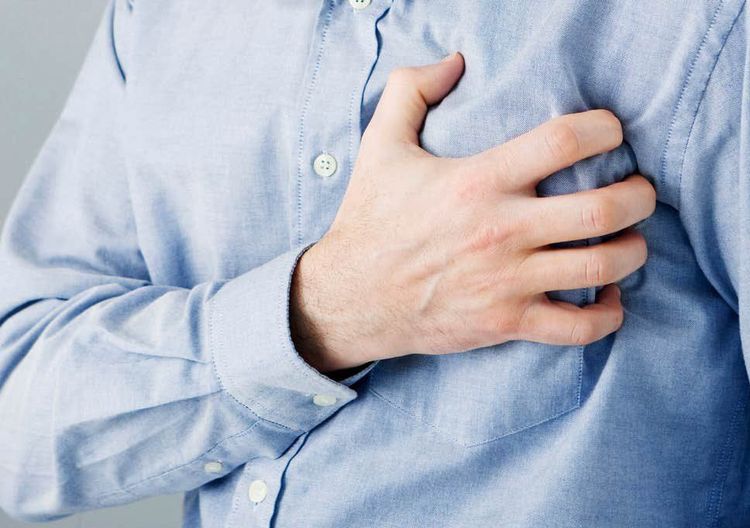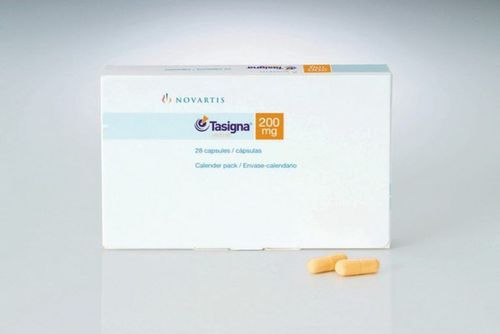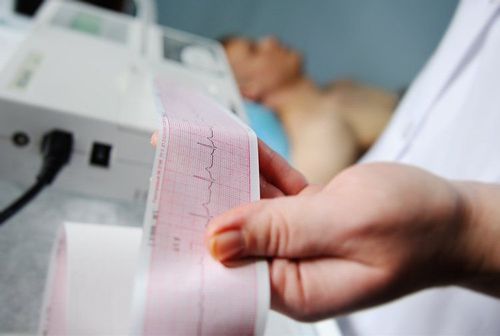This is an automatically translated article.
The article was professionally consulted by Dr. Tran Quoc Tuan - Emergency Medicine Doctor - Emergency Resuscitation Department - Vinmec Phu Quoc International General Hospital.Myocardial infarction is one of the leading causes of death in the group of diseases in general and cardiovascular diseases in particular. This is a dangerous disease with many potential risk factors, but it has not been properly cared for and prevented.
1. Overview of myocardial infarction
1.1 What is a myocardial infarction? Myocardial infarction is a dangerous disease caused by blockage of one or more coronary arteries that nourish the heart muscle. The heart muscle is not supplied with enough blood and gradually necrosis, causing symptoms of severe chest pain for the patient. If not treated promptly, the necrotic part of the heart muscle will scar after several weeks and increase the risk of complications of heart failure.1.2 Causes of myocardial infarction According to research, up to 90% of the reason for myocardial infarction is due to coronary atherosclerosis. The primary cause is the formation of a blood clot inside a blood vessel that blocks this coronary artery. With a normal coronary lumen, blood clots are unlikely to occur. However, when cholesterol and other fatty substances in the blood are deposited, it will cause coronary artery walls to form atherosclerotic plaques.
These plaques are exposed to blood for a long time, forming a clot and blocking the coronary arteries, making it impossible for blood to flow to the heart muscle.
1.3 Who can have a heart attack? Myocardial infarction is common in elderly people, smokers, people with overweight, obesity and accompanying metabolic disorders such as hypertension, diabetes, dyslipidemia... People with a family history of early cardiovascular disease (men under 55 years old, women under 65 years old) are also at high risk. The more a person has a combination of the above risk factors, the more likely they are to have a heart attack.
1.4 Is a heart attack dangerous? Myocardial infarction is always evaluated as a complex disease and has an alarming level of alarm. According to statistics, up to 30% of patients die before being hospitalized. The process of diagnosis and treatment also requires speed and absolute accuracy. When a patient has a heart attack, doctors need to race against time to win and protect the patient's life.
In Vietnam, the rate of people having a heart attack tends to skyrocket in recent years. On average, next year will be 15-20% higher than the previous year. In young people, the rate of myocardial infarction in men is 3 times higher than in women. After menopause, because there is no longer protection from female sex hormones, the incidence of disease between men and women is balanced again.

Nhồi máu cơ tim luôn được đánh giá là căn bệnh phức tạp và có mức độ cảnh báo ở mức báo động
2. Typical signs of myocardial infarction
Patients can easily recognize they have a heart attack by the very typical chest pain. It is a feeling of pain behind the breastbone, in the left chest or in the epigastrium. The pain makes the patient feel like he is being weighed down, suffocated in the chest, even gradually spreading to the neck, chin (jaw area), shoulders, and hands.There are also other symptoms of myocardial infarction, such as sweating, heart palpitations, palpitations, the patient may have nausea, shortness of breath, dizziness and unconsciousness.
Symptoms and signs of myocardial infarction can vary depending on age, sex, affected area, and comorbidities. More dangerously, patients with diabetes and the elderly are likely to have a heart attack with a silent course, with no obvious symptoms, but only fatigue and exhaustion for no apparent reason. Although these are atypical signs of myocardial infarction, they still need to be carefully monitored and screened when necessary.
3. Examination, diagnosis and treatment of myocardial infarction at Vinmec International General Hospital

Người bệnh cần đi khám ngay khi có các triệu chứng cảnh báo để phát hiện và điều trị bệnh kịp thời
For patients with confirmed myocardial infarction, intensive treatment is required at emergency units. cardiology research. The prerequisite for the treatment of heart attacks is a race against time, quickly clearing the blocked blood vessel as soon as possible.
Currently, in addition to specializing in examination, screening and diagnosis of cardiovascular diseases, Vinmec Phu Quoc International General Hospital implements fibrinolytic therapy applied to patients with myocardial infarction with point. This is a drug-based technique that breaks up blood clots that form in the blood vessels. The method is used by Professors, Doctors, Cardiologists - Doctor Luong Vo Quang Dang - Cardiologist, Head of Internal Medicine Department at Vinmec Phu Quoc International General Hospital, with many experience with high success and safety rates (> 95%), saving many cases of life-threatening acute myocardial infarction.
Besides, regular medical examination and treatment according to the doctor's opinion is also what patients should do to minimize mortality as well as complications later.
Doctor Tran Quoc Tuan has 12 years of experience at Vinh Long General Hospital, Gia Dinh People's Hospital, Nguyen Trai Hospital. Currently working as an Emergency Resuscitation Doctor at Vinmec Phu Quoc International General Hospital.
Customers can go directly to Vinmec Phu Quoc to visit or contact hotline 0297 3985 588 for support.
MORE:
What should heart attack patients eat? Treatment of acute myocardial infarction Acute myocardial infarction - A scary disease that kills faster than cancer













